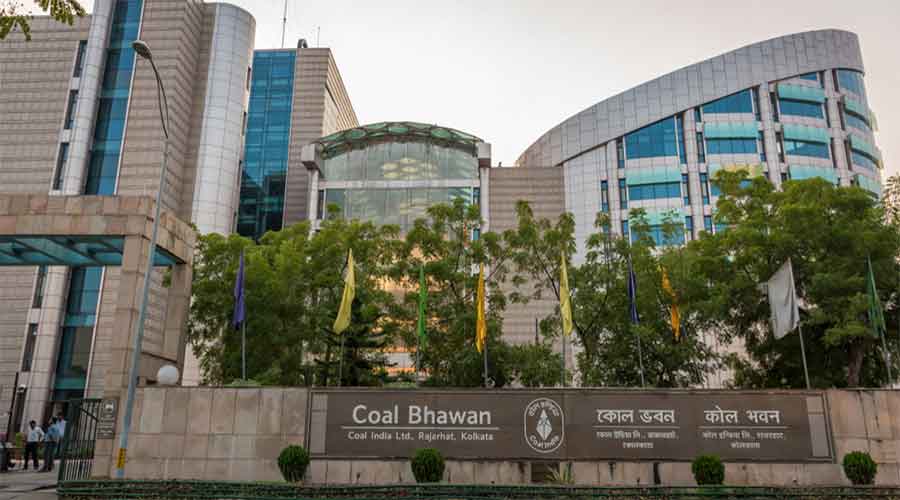Coal India has found initial success in lowering carbon dioxide emission using mechanised means of coal transportation through conveyor belts and loading by coal handling plants and silos.
The development comes at a time the country has taken a challenging COP26 commitment of achieving net zero emissions by 2070.
The public sector miner had engaged National Environmental Engineering Research Institute, a unit of Council of Scientific Industrial Research, to evaluate the environmental impact of coal movement through mechanised means at two of its big opencast mines — Lingaraj and Gevra in Mahanadi Coalfields and South Eastern Coalfields, respectively.
In the Lingaraj open cast project, there was an annual reduction of 10,288 tonnes of CO2 emissions, an overall 54 per cent drop compared with despatch through railway sidings. There was also a 73 per cent drop in particulate matter and other gaseous emission. In Gevra, reduction in CO2 emissions was 1,658 tonnes per year, an overall 21 per cent drop against loading through sidings. Particulate matter and gaseous emission reduction was 84 per cent.
“The result of the study is encouraging. Mechanised loading offers many environmental benefits such as reduced CO2 emissions, other air pollutants and ambient noise levels. Reliability in coal despatches also increases especially during monsoon as silo loading avoids road transport,” a Coal India official said.
The public sector miner has planned an investment of Rs 10,500 crore for first mile connectivity projects that would lift the total mechanised loading by Coal India to 566 million tonnes.
According to Coal India officials, another offshoot of mechanised loading is savings that accrue out of a decrease in diesel consumption and road transport cost. The two mines together saved Rs 170 crore on diesel consumption.
Coal India is also dovetailing mechanisation projects with main railway lines at an estimated investment of Rs 2,335 crore.
Coal is a major source of carbon emission in India. A study by the International Energy Agency shows that economic recovery in India in 2021 is expected to push emissions by almost 1.4 per cent above the 2019 levels.










